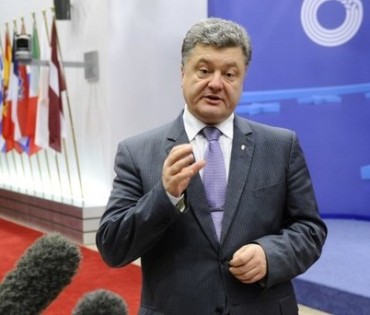Deputy Director of the IWP Kateryna Zarembo for EUobserverIn Ukrainian elections are sometimes metaphorically called ”the will expression fest”. Up until now, the phrase was only loaded with irony. However, on Sunday, May 25, it felt like a fest indeed. The average turnout exceeded 60%. Kyiv, among others, witnessed unprecedented queues, where the average waiting time to fulfil one’s civil duty was 1,5-2 hours. Many joined the flash mob of wearing Ukrainian traditional shirt vyshyvanka to the polling site. Others put on their best outfits. People were not discouraged by long queues, nor by the heat, not by the absence of air conditioning .\
These elections are the pinnacle of the long winter protest, in which many people died and even more were injured in the fight for their rights and freedoms. Last Sunday people felt that they had to take this chance seriously and not only finally elect a legitimate and trustworthy President but also demonstrate their political and civil maturity to the whole world.
Petro Poroshenko, who won by a landslide, is not a representative of a young generation. But he is definitely of a different quality compared to the presidents Ukraine has had so far.
Terming him an oligarch might be not exactly correct since he made his fortune without any privatization schemes in the 1990-ies. Nor does he have any nomenklatura roots. Vice versa, as soon as private entrepreneurship was made possible in the final years of the Soviet Union, he demonstrated strong business skills and a flair for profit-making. Some of his business partnerships, as well as his marriage, go back to his student years.
He is also the first Ukrainian President who speaks English fluently.
What does Poroshenko’s presidency mean for the EU-Ukraine relations?
Poroshenko’s victory is probably good news for Ukraine’s European integration, since he’s been its ardent and consecutive supporter for many years.
The recent expert survey, conducted by the Institute of World Policy and aimed at determining which candidate in the presidential race was best fit to advance Ukraine’s European integration, resulted in Poroshenko’s undisputed leadership. IWP polled 80 independent and respectable Ukrainian experts, out of whom 54 ranked Poroshenko first and 16 more ranked him second or third.
The “chocolate king” is not new to the Ukrainian politics. His political career started back in 1997. Not only was his activitity was closely related to Ukraine-EU relations but he actually managed to have top positions under Ukraine’s two previous presidents: he was the head of the National Security and Defense Council and the Minister of Foreign Affairs under Yushchenko and a Minister for Economic Development and Trade under Yanukovych. In particular, Ukraine’s trade relations with European countries were in his jurisdiction. He was also offered a Deputy Minister position by Leonid Kuchma in 2003 but declined because he supported Yushchenko at that time. As a businessman and philantropist he also supported public events in Brussels, aimed at better understanding between the EU and Ukraine. Hence, he has wide connections among the European political and business elite.
In 2013 Poroshenko constantly tried to persuade Ukraine’s authorities to sign the Association agreement with the EU. He also called the European integration one of the priorities for his presidency.
Is he fit for managing a country? His experience of big business management speaks in his favour. He is said to have the deep first-hand understanding of his business, which, among others, includes confectionary and media assets.
It is important to underline that the Ukrainian society now is very different from what it was back when the previous presidents were elected. Poroshenko can boast no excessive credibility among the Ukrainian people, who have baptized their right for democracy and the rule of law with the blood of innocent people. He was elected to be an accountable public manager, not a uncontrolled ruler.
For starters, it is precisely his business assets where Poroshenko should eliminate the conflict of interest in order to maintain his popularity. In particular, he promised to sell his business upon becoming a President. Its the primary asset is “Roshen” corporation which Poroshenko calls his fifth child and which belongs among 20 largest confectionary factories in the world. In his interview to Ukrainian “Forbes” in 2013 his answer to the question on a possible “Roshen” sale was: “The Motherland, “Roshen” and other things are not for sale”. It remains to be seen whether the businessman elected a President can sell his brainchild but not his country.
The project “European President” was conducted by Institute of World Policy as part of its project New European Policy implemented under Ukraine National Initiatives to Enhance Reforms (UNITER) program, which is funded by the United States Agency for International Development (USAID) and implemented by Pact Inc.




Comments theme
Comments themeComments themeComments themeComments themeComments themeComments themeComments themeComments themeComments themeComments themeComments themeComments themeComments themeComments themeComments themeComments themeComments themeComments themeComments themeComments.